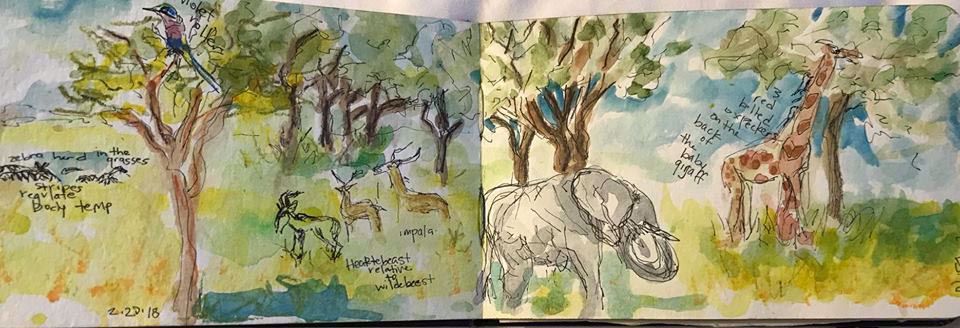Adventure travel is expensive. Maybe not compared to luxury cars, exclusive resorts, or fancy jewelry - but those aren't the yardsticks most of use to judge whether something costs alot. Adventure travel especially looks expensive compared to the tours advertised in the Sunday newspapers that are often half to two thirds cheaper - and include airfare! Even when you figure in all the costs they aren't telling you about (add ons, taxes, fees etc), those tours are still a much cheaper way to travel.
Honestly, before I got in the business I thought it was "luxury pricing" - the concept that if you put a high price on something, people will believe it is more valuable. As Forbes Magazine says "A high-priced item can convey prestige and a sense of belonging to an elite group." There may be some of that, particularly among the more high end adventure travel companies - but I've also come to learn more about the basic economics of adventure travel, and it's that I want to share with you.
The most important driver of costs is the size of the group. If you have a large group, you can spread your fixed costs out over a larger number of people. Obviously a leader/participant ratio of 2:12 is much more expensive than 1:40. In addition, with large groups you have "pricing power". If you can guarantee a hotel that you will fill 15-30 beds, especially if you do that every month, they will give you much better rates than if you reserve 7 rooms once a year. The same thing is true for meals at restaurants and activities on a trip. It really does cost less to travel in a large group than on your own with comparable lodging. But the very essence of adventure travel makes it incompatible with a large group. Tramping through the Grand Canyon or a small hilltown in Italy is going to feel very different in a group of 10 to 12 than in a group of 50 - or even 20.
So the size of the group is the biggest factor, but another important factor is the level of customer support and the expertise of the people who provide it. People who are going on their first adventure trip often have lots of questions - and while some can be answered in trip literature (e.g. what should I pack or how can people reach me in an emergency), many questions are unique to the person asking them. So most adventure travel companies have people on staff who hike, kayak, backpack etc and/or travel extensively. When you call or email, you don't talk with someone who has been trained to answer the 20 most common questions. You usually talk to someone who has first hand experience and is passionate about travel, and who knows how to track down the answers to obscure questions when they need to. But one person can't provide that level of support for 1,000 customers.
Also, adventure travel is a very personal business. In more than one case, when a large traditional travel company has bought an adventure travel company, especially when that large company has no roots in the adventure travel business, prices may have gone down - but so has the quality of the experience and ultimately the success of the business. Adventure travel isn't a commodity; treating it like a typical mass travel experience robs it of what makes it special.
So that is a broad overview. In subsequent blog posts I'll discuss why women's travel can be more expensive than similar mixed-gender travel and how to choose an adventure travel company.



